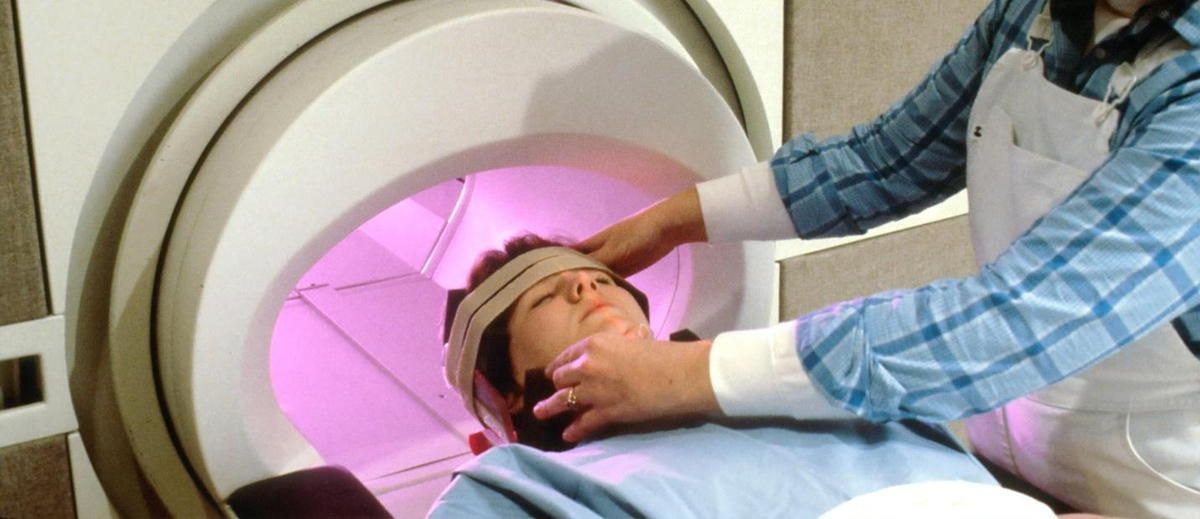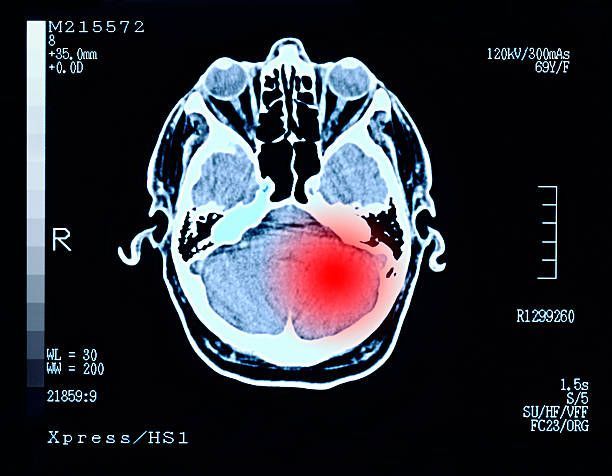Traumatic Brain Injury Counseling Services Based in Jacksonville, FL
A traumatic brain injury (TBI) can transform life in unexpected ways, affecting cognitive abilities, emotions, relationships, and everyday activities. At River Shores Counseling in Jacksonville, FL, we specialize in compassionate and tailored counseling for individuals recovering from TBI, providing the support and tools necessary to navigate the complexities of life after a brain injury. With expertise and understanding, our therapists help you rebuild, adapt, and find renewed purpose.

Understanding the Impact of TBI
Traumatic brain injuries often arise from accidents, falls, sports injuries, or other traumatic events. While each person's experience with TBI is unique, challenges can include the following:
- Memory Issues, Cognitive Difficulties, or Slowed Processing
- Emotional Changes (Irritability, Depression, or Anxiety)
- Difficulties With Impulse Control, Social Interactions, or Communication
- Physical Symptoms (Headaches, Fatigue, and Sleep Disturbances)
These changes can be frustrating and sometimes isolating, but with the proper support, meaningful recovery is possible.
How Counseling Supports TBI Recovery
Counseling can be a vital part of healing from a TBI, as it provides tools to manage new challenges and cope with the emotional effects of the injury. Our therapists at River Shores Counseling work with you to create a treatment plan that supports both your mental health and functional goals, guiding you toward a fulfilling life post-injury.
Benefits of TBI Counseling
Enhancing Cognitive and Emotional Adaptation
Counseling can help you develop strategies for managing cognitive challenges, such as memory, focus, and decision-making. Additionally, we work with you to address and alleviate emotional changes, building resilience and self-acceptance.
Building Coping Skills for Emotional Health
TBIs can bring about intense emotions and shifts in personality that may feel unfamiliar. Through guided counseling, we help you understand these changes, manage anxiety or depression, and cultivate practical coping skills for navigating daily life.
Improving Relationships and Communication
Changes in mood and social skills can strain relationships. Our counseling sessions provide a safe space to work on communication techniques, empathy, and understanding.
Restoring a Sense of Independence and Purpose
We recognize the importance of reclaiming autonomy. Through counseling, we guide you in setting realistic goals, creating routines, and rediscovering activities that bring you joy and fulfillment.
Our Approach to TBI Counseling
At River Shores Counseling, we believe in a holistic approach that addresses TBI recovery's emotional and cognitive aspects. Our experienced counselors use evidence-based methods, such as cognitive-behavioral therapy (CBT), mindfulness techniques, and supportive therapies, to help you manage symptoms, build adaptive skills, and foster a positive outlook. We tailor our approach to your needs, creating a plan aligning with your unique goals and lifestyle.
Begin Your Journey to Recovery
Healing from a TBI is a journey, and you don't have to do it alone. At River Shores Counseling, we support you every step of the way. If you or a loved one seeks support after a TBI, contact us to schedule a consultation.
TBI (Traumatic Brain Injury)

Rachel was a young, vibrant woman who loved nothing more than hitting the open road in her car. One sunny afternoon, she was driving home from work when she was hit by a car that ran a red light. Her car was totaled, and she suffered a traumatic brain injury (TBI) that left her with severe headaches, memory loss, and difficulty concentrating.
Thankfully she recovered from her physical injuries, but the most devastating consequence of the accident was the post-traumatic stress disorder (PTSD) that Rachel developed in the weeks and months that followed.
Driving aside, merely sitting in a car would make her extremely stressed. She found herself reliving the accident over and over, unable to shake the fear and anxiety that had taken hold of her.
Rachel’s incident is not rare. This is actually a common scenario for people who have experienced a traumatic brain injury (TBI).
In this article, we'll explore the connection between TBI and PTSD, the ways in which counseling can help, and why it's so important to include counseling as part of the treatment plan for those with TBI-related PTSD.
What is TBI and PTSD?

TBI (Traumatic brain injury) is a severe injury caused by a sudden blow or jolt to the head. It can occur as a result of a wide range of accidents, including auto accidents, sports injuries, assault, and premises injuries.
Auto accidents are one of the most common causes of TBI, as the force of impact can cause the brain to move within the skull, resulting in injury.
Falls are also one of the most common reasons. According to CDC, almost half of the reported hospitalized traumatic brain injury cases are from falls.
Sports injuries, such as concussions, can also cause TBI, especially in contact sports like football and hockey.
Assault is another common cause of TBI. Examples are getting in a fight, a blow to the head, or suffering from domestic abuse.
Premises injuries, such as slip and fall accidents, are also common causes of TBI. These types of injuries can occur on the job or on another business's property and can be caused by a range of hazards, such as wet floors, loose carpeting, and faulty equipment.

TBI can result in a range of physical, cognitive, and emotional impairments that can persist long after the injury occurs.
On the other hand, PTSD (Post-traumatic stress disorder) is a mental health condition that can occur after experiencing or witnessing a traumatic event, including several of the ones mentioned above. It can persist for extended periods, leading to severe psychological problems in the long run.
Common symptoms of PTSD can include flashbacks of the event, anxiety, depression, irritability, hypervigilance, and difficulty sleeping, among others. In some cases, TBI can cause or exacerbate existing PTSD.
The physical symptoms of TBI, such as headaches, dizziness, and fatigue, can make it challenging for individuals to manage the emotional trauma of PTSD.
At the same time, the emotional symptoms of PTSD, such as anxiety, depression, and hypervigilance, can exacerbate the cognitive symptoms of TBI, such as memory loss and difficulty concentrating.

Often, in the cases of Traumatic Brain Injury, all focus is put on healing the physical injury. However, it is crucial to understand that counseling is also an essential component of treating both TBI and PTSD, especially when they occur together.
In traditional counseling, a therapist helps the patient address their emotions and feelings related to the traumatic event. This type of therapy is particularly useful for people who have experienced a TBI and developed PTSD because it helps them understand and process their emotions related to the injury.
Counseling can also help patients identify and address negative thoughts or beliefs about the injury or themselves, which can contribute to the development of PTSD.
Behavioral therapy is another type of therapy that can be useful for people with TBI-related PTSD. Behavior therapy focuses on changing specific behaviors that are causing negative thoughts or emotions.
This type of therapy focuses on changing harmful behaviors and patterns by providing positive reinforcement for healthy behaviors. In this context, this type of therapy can help patients identify and change behaviors that are making their PTSD symptoms worse.
For example, a patient who is avoiding social situations due to anxiety related to their injury may work with a therapist to gradually expose themselves to those situations and learn coping mechanisms to deal with their anxiety.
Similarly, Cognitive-behavioral therapy (CBT), exposure therapy, and eye movement desensitization and reprocessing (EMDR) are all effective forms of counseling that a trained professional can use to treat TBI-related PTSD.

CBT helps individuals change negative thought patterns and behaviors, while exposure therapy involves gradually exposing individuals to the source of their fear in a controlled environment. EMDR(Eye Movement Desensitization and Reprocessing) is a therapy that uses eye movements to help individuals process traumatic memories and experiences.
Counseling is particularly useful because it can help you identify and address co-occurring mental health conditions that may be contributing to your PTSD symptoms. For example, a patient with TBI-related PTSD may also be experiencing depression or anxiety that is exacerbating their PTSD symptoms.
Seeking counseling from an expert can help you overcome your PTSD and return to a healthier and more satisfying life. Given its profound impact, it is important to consider counseling with traditional physical therapies for individuals with TBI and PTSD.
This holistic approach can help individuals manage their symptoms more effectively, learn life-lasting coping mechanisms and improve their overall quality of life.
TBI and PTSD are two severe and debilitating conditions that – if left untreated – can have long-lasting effects on an individual's life. When they occur together, they can be particularly challenging to manage.

If you identify the symptoms of TBI-related PTSD in yourself or your loved ones, seeking counseling services and working with professionals who have experience treating these complex conditions can help you recover and live a better life.
While the journey toward recovery may not be easy, overcoming the challenges and achieving a fulfilling and satisfying life with the right support and guidance is possible. Remember, seeking help is a sign of strength, and there is no shame in reaching out for the support you need to heal and thrive.
Let us help you rediscover resilience, independence, and a renewed sense of self. Call (904) 737-3232.
